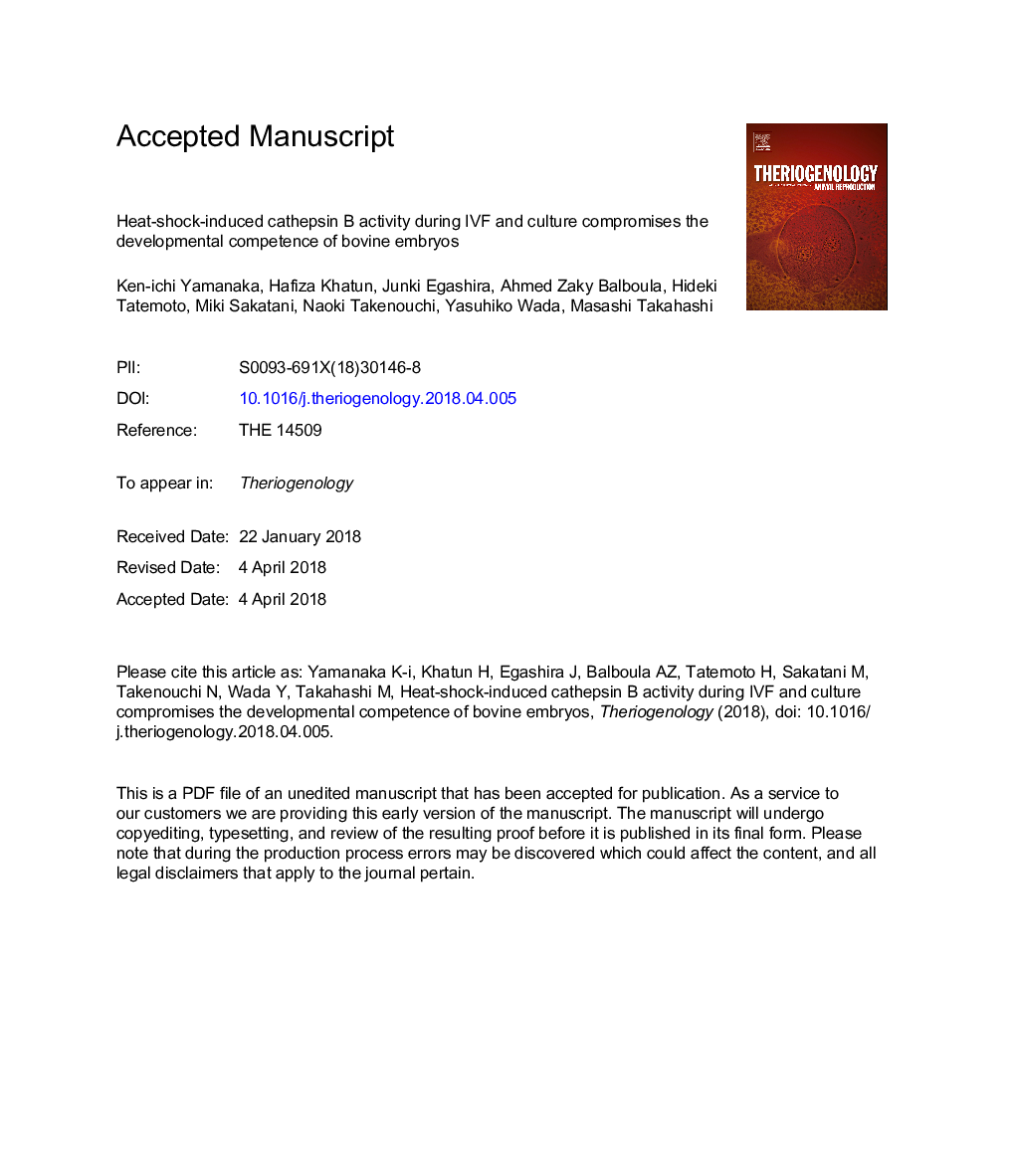| Article ID | Journal | Published Year | Pages | File Type |
|---|---|---|---|---|
| 8427176 | Theriogenology | 2018 | 29 Pages |
Abstract
Heat stress can cause significant reproductive dysfunction in mammals and previous studies report that expression and activity of cathepsin B (CTSB), a lysosomal cysteine protease, is negatively correlated with the developmental competence of bovine oocytes and embryos. However, the relationship between heat shock (HS) and CTSB remains largely unknown. Here, we investigated the effects of HS during IVF and early embryonic stages of IVC on CTSB activity and developmental competence in bovine embryos. HS (40â¯Â°C for 6â¯h during IVF and 20â¯h during IVC) caused a significant increase in CTSB activity irrespective of the developmental stage or duration of HS. The developmental rate to the blastocyst stage was also significantly decreased by HS. Additionally, HS during IVC significantly increased the number of apoptotic cells in blastocysts. Notably, these HS-induced changes in blastocyst development and quality were significantly improved by inhibition of CTSB activity, indicating a key role for CTSB. These results showed that CTSB activity plays an essential role in HS-induced dysfunction in bovine embryo development, and that inhibition of this activity could enhance the developmental competence of heat-shocked embryos.
Related Topics
Life Sciences
Agricultural and Biological Sciences
Animal Science and Zoology
Authors
Ken-ichi Yamanaka, Hafiza Khatun, Junki Egashira, Ahmed Zaky Balboula, Hideki Tatemoto, Miki Sakatani, Naoki Takenouchi, Yasuhiko Wada, Masashi Takahashi,
